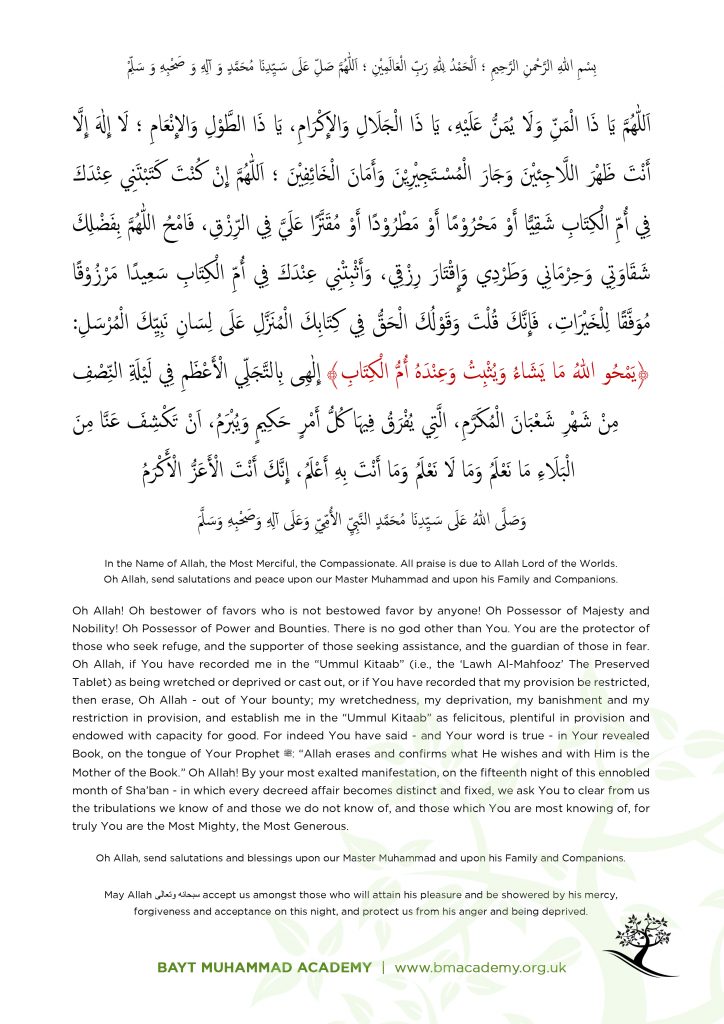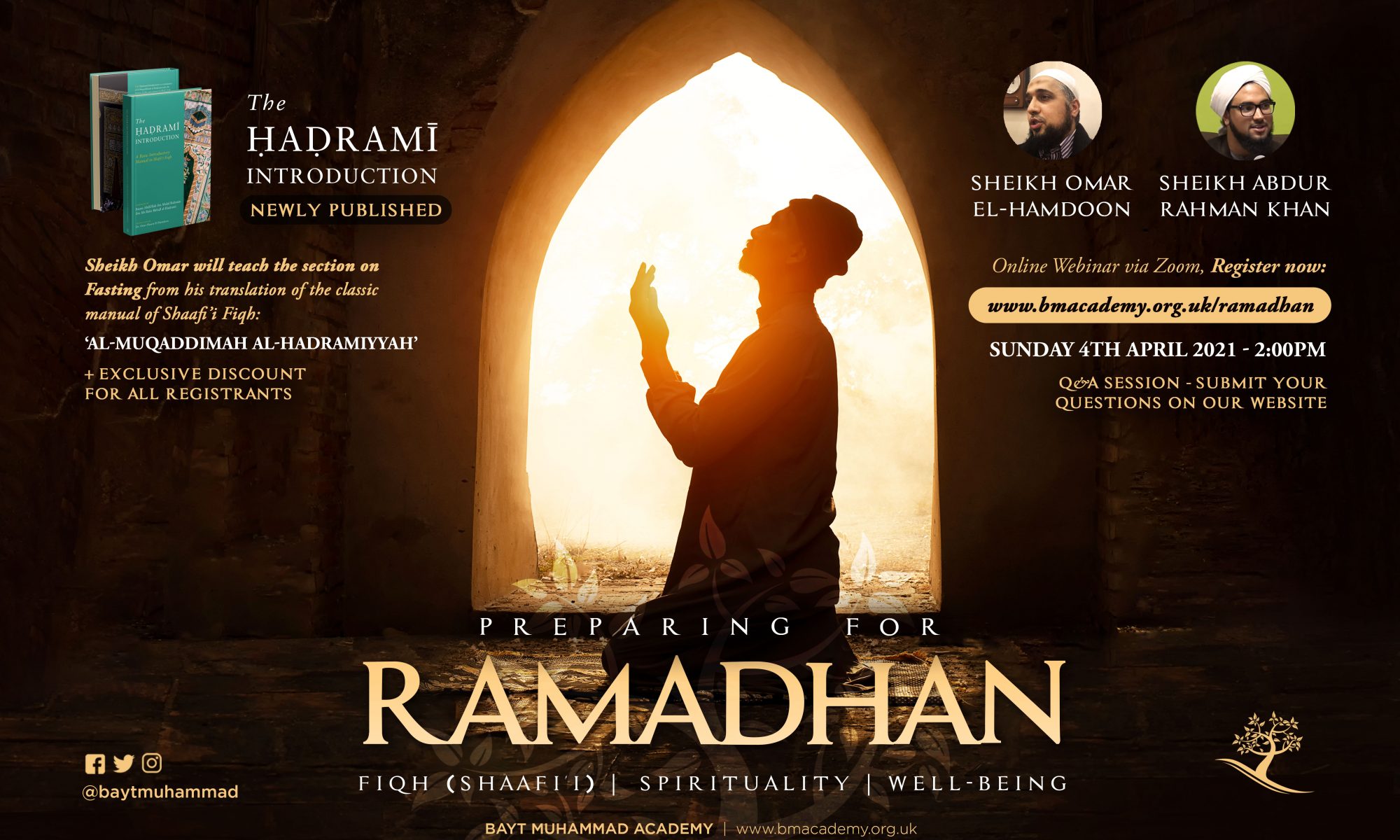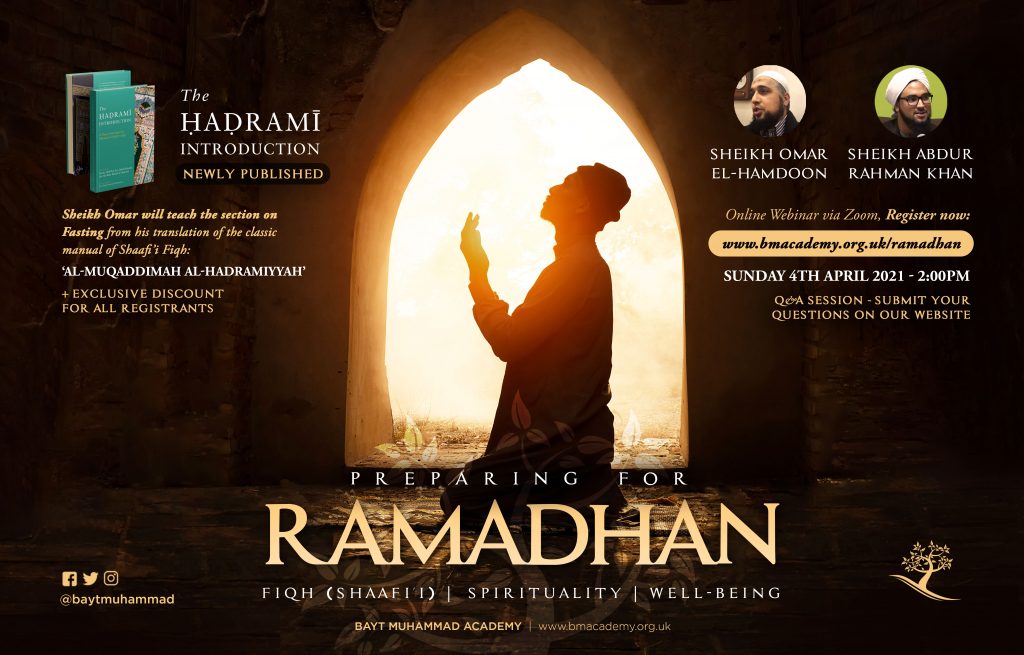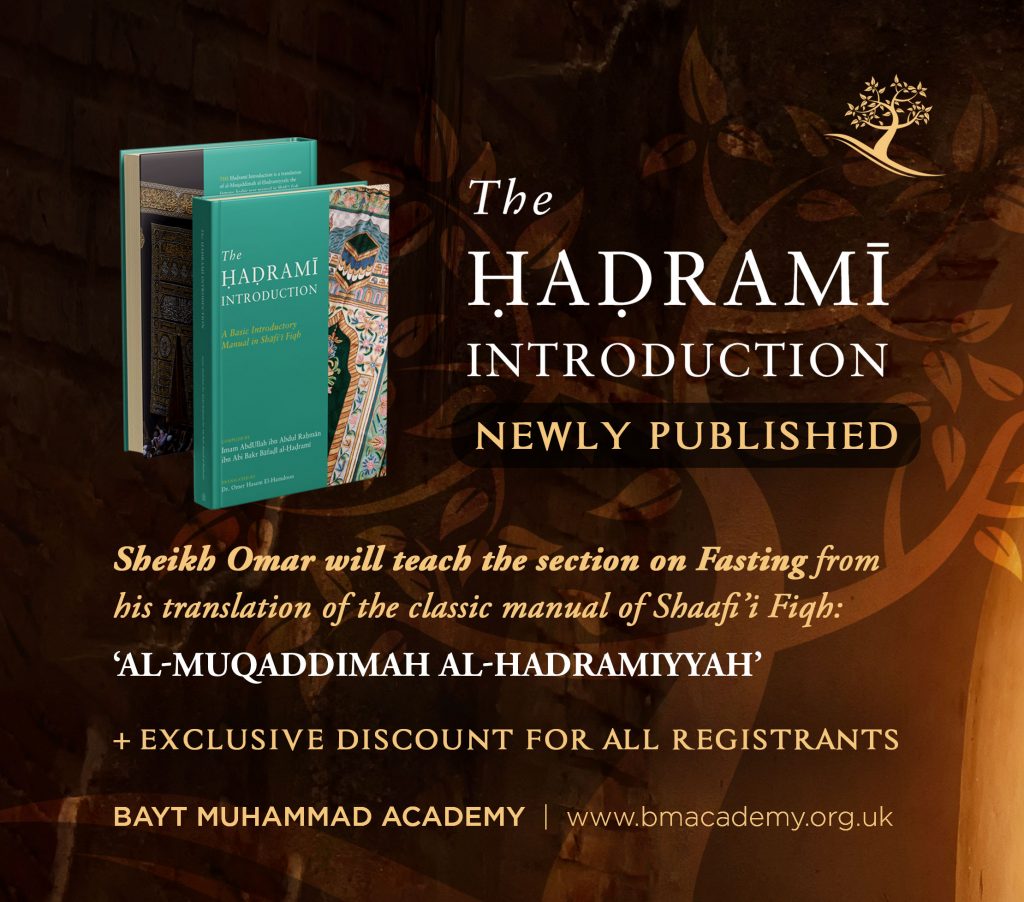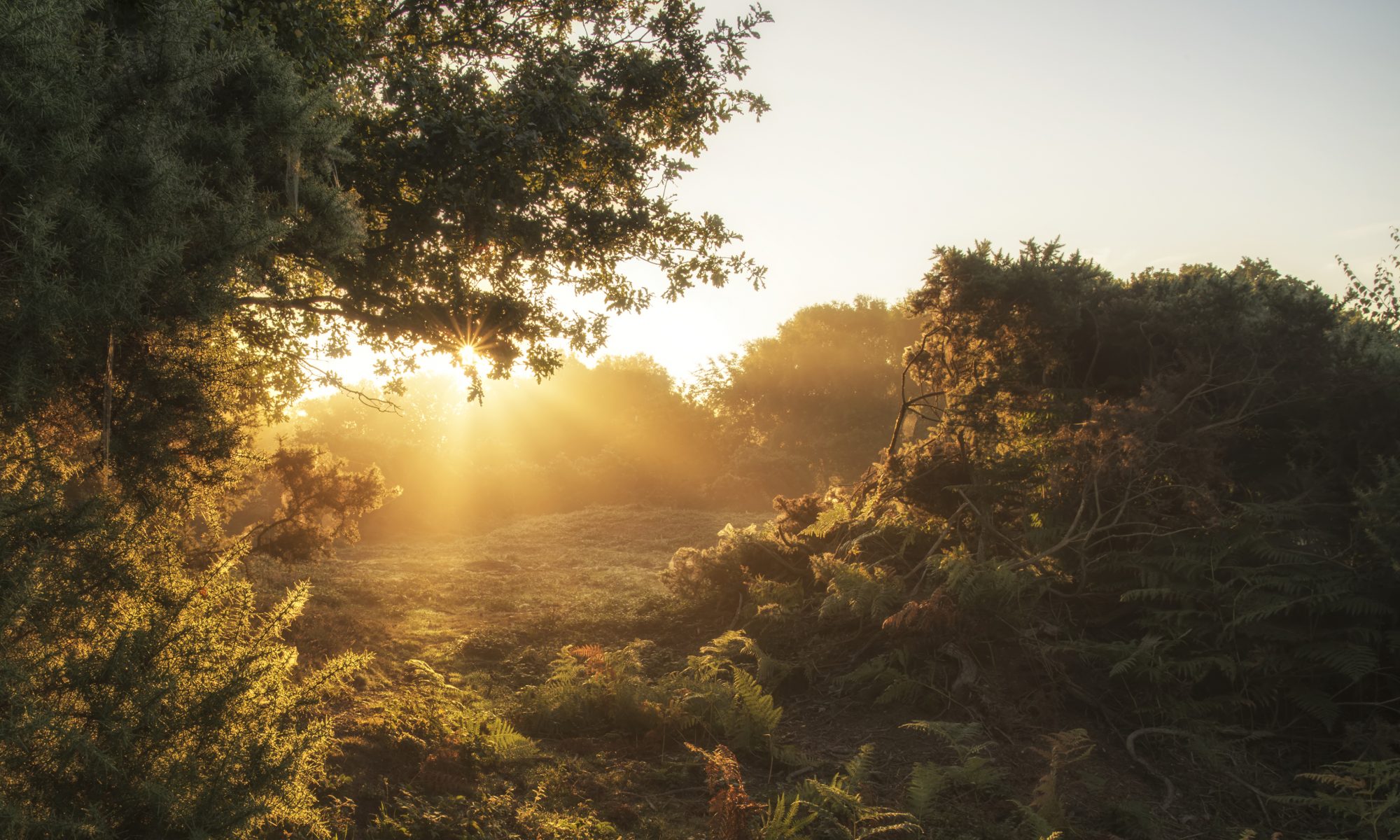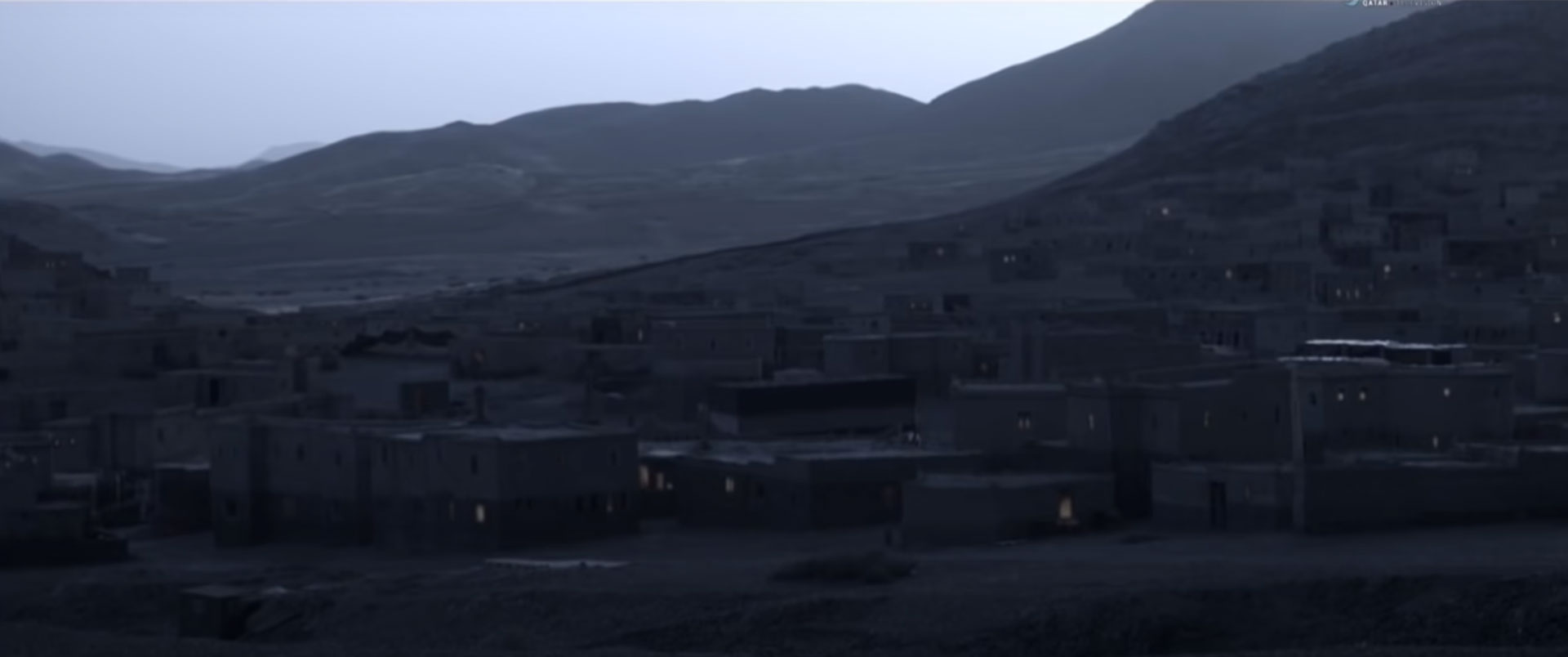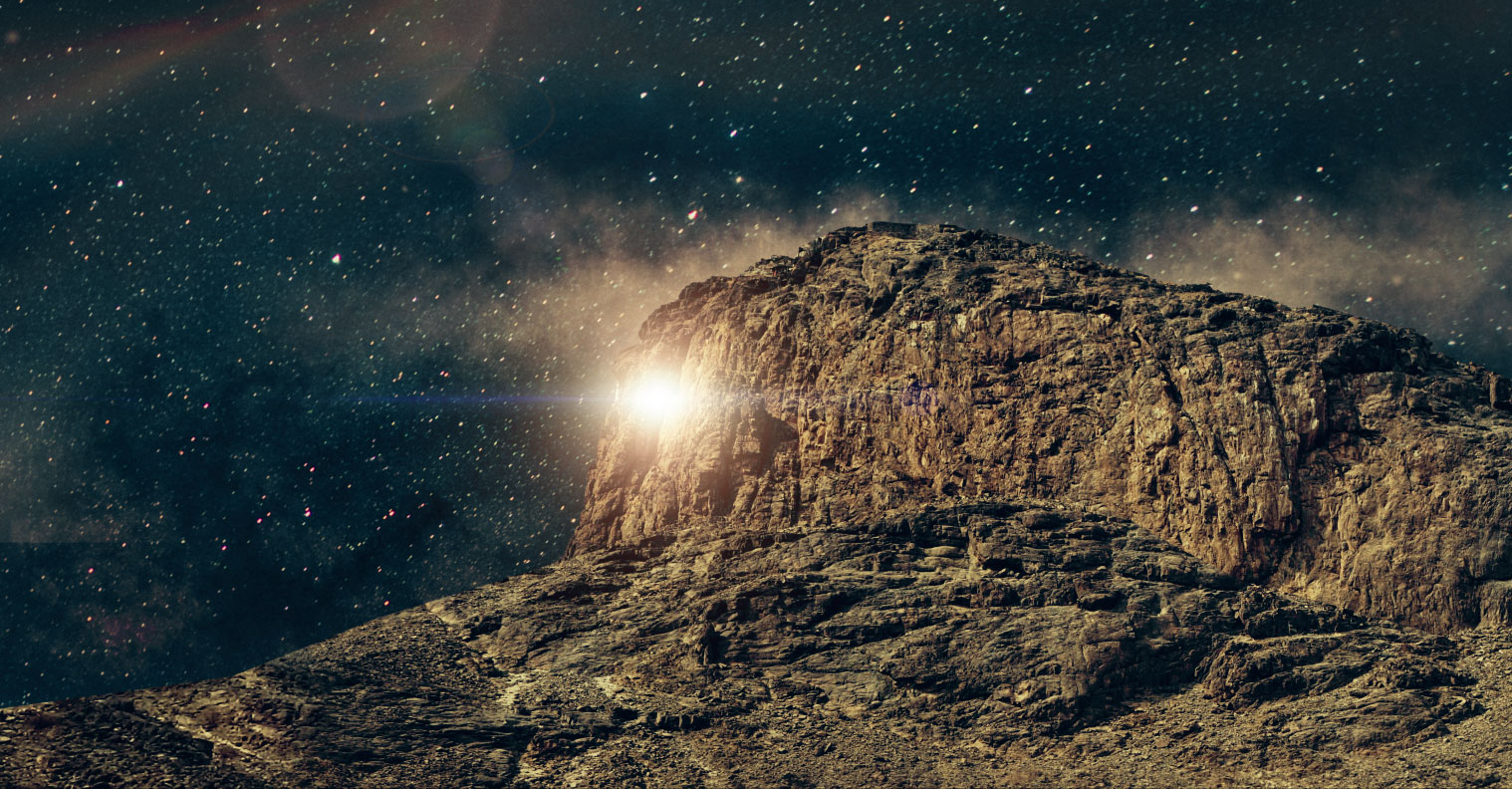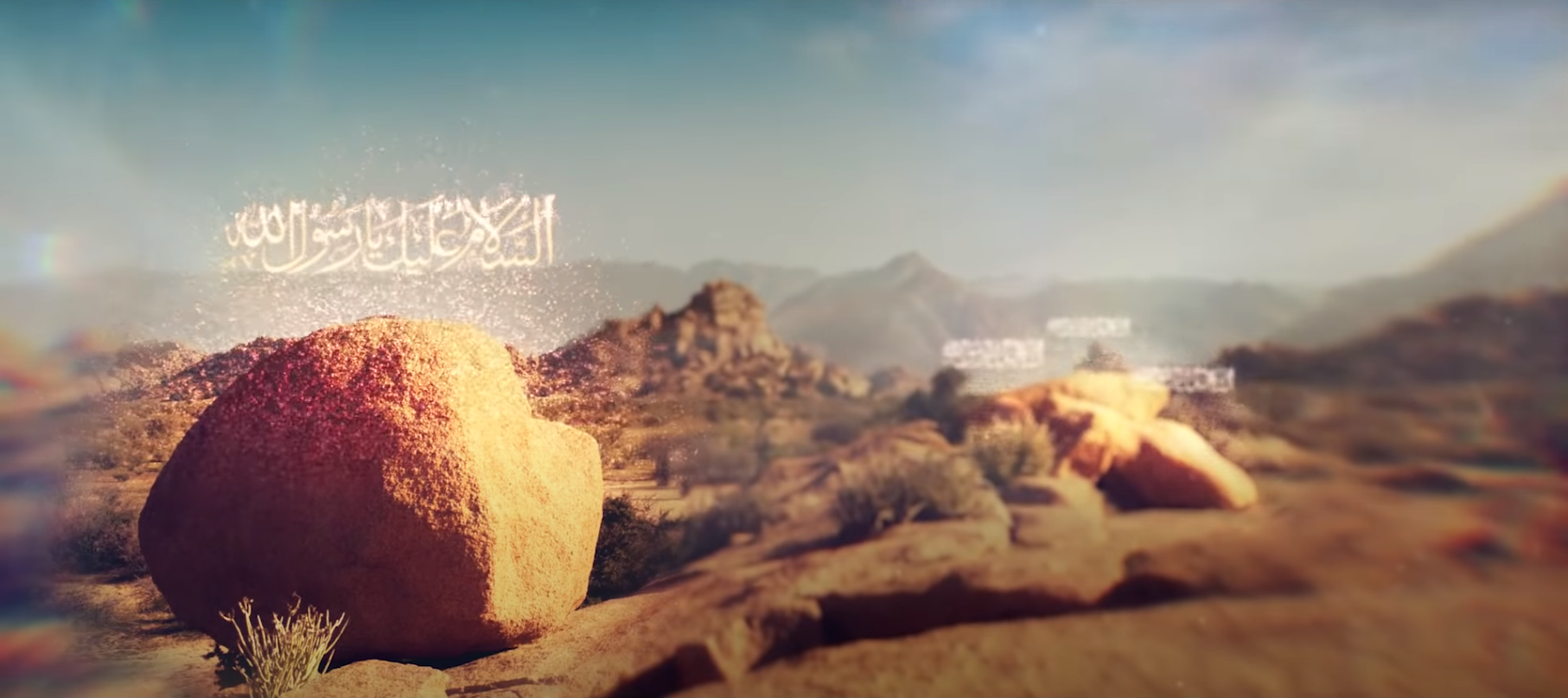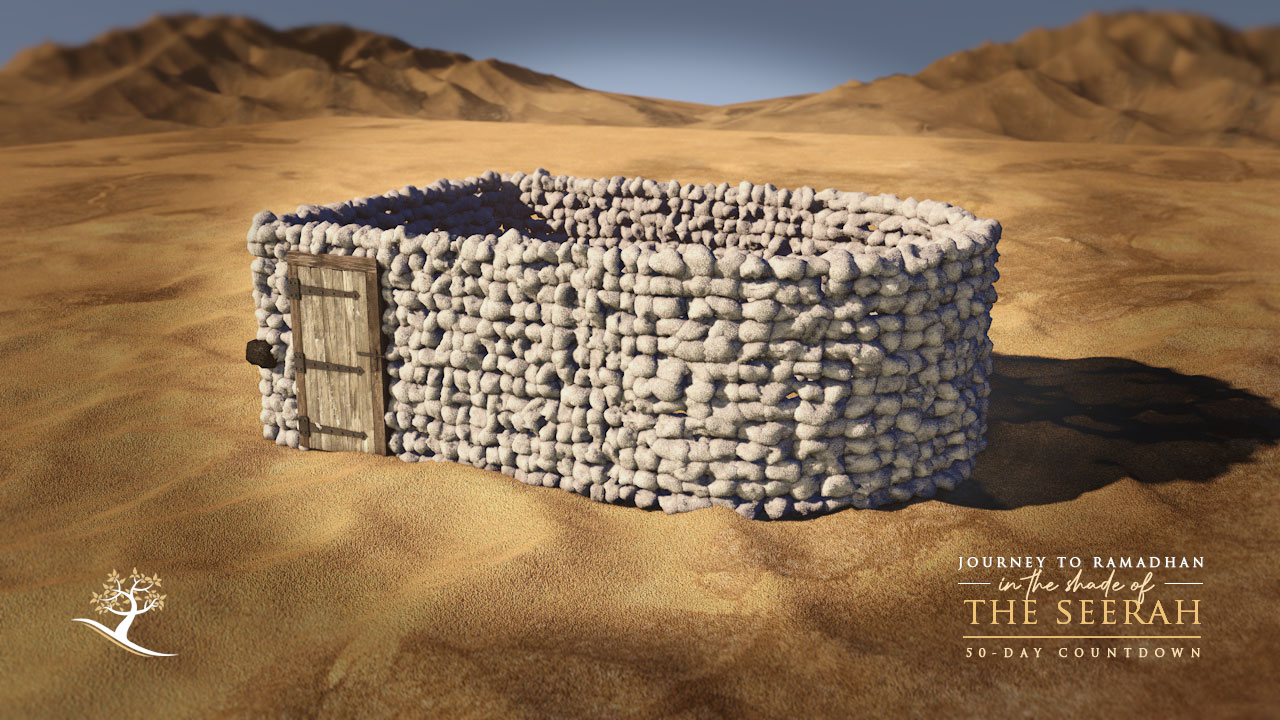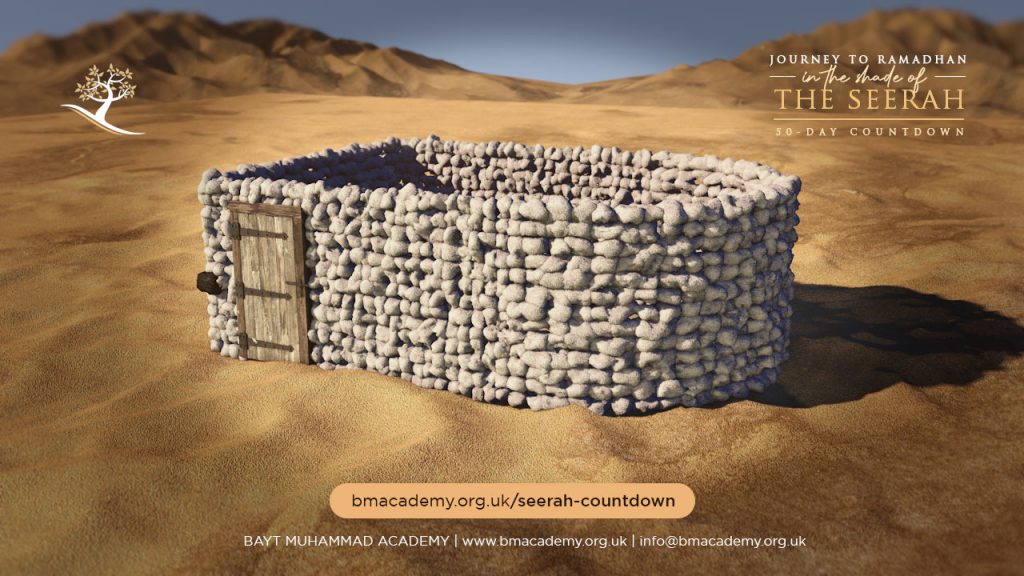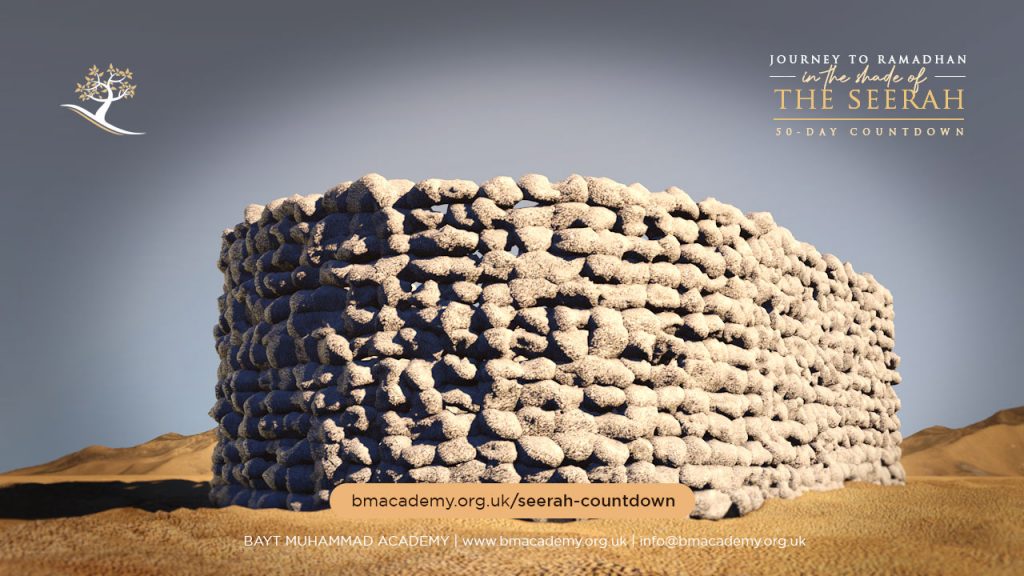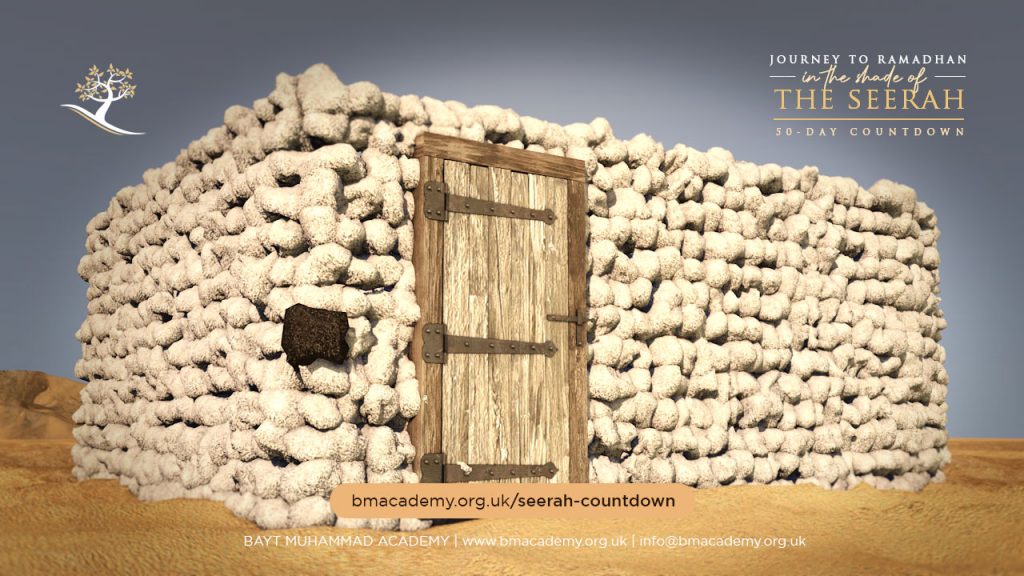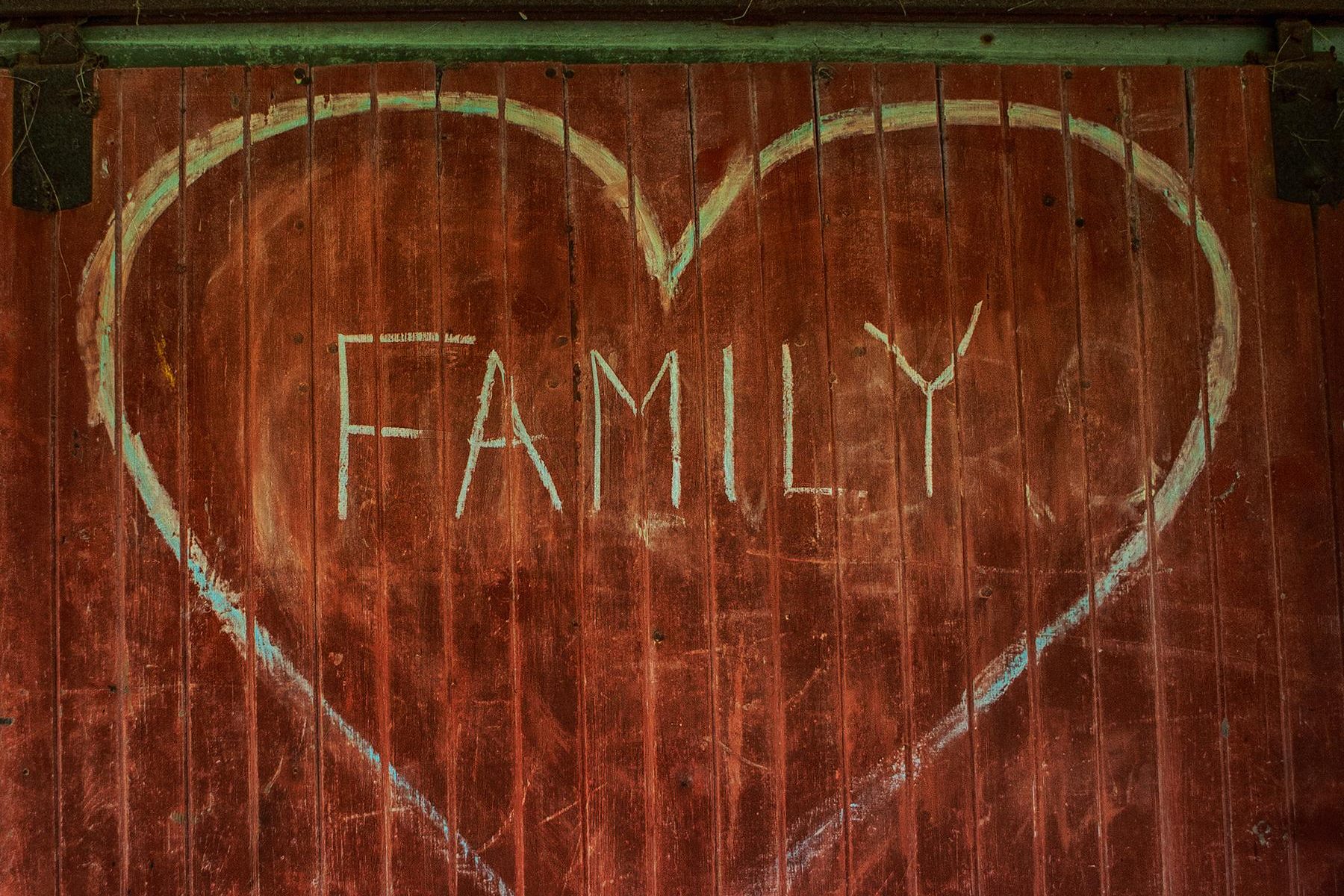بِسْمِ اللّٰهِ الرَّحْمٰنِ الرَّحِيْم
الحمد لله رب العالمين الذي منّ علی المؤمنين اذ بعث فيهم رسولا من انفسهم يتلوا عليهم ايته و يزكيهم و يعلمهم الكتاب و الحكمة و ان كانوا من قبلُ لفي ضلال مّبين
The first three years of the Prophet’s ﷺ mission were the period of the secret call, wherein the Prophet ﷺ would individually call selected individuals to Allah سبحانه و تعالی. This was a period of initiation and foundation, in which Allah سبحانه و تعالی was preparing his beloved ﷺ and fortifying his mission with the purest of souls, who would form the special league of As-Saabiqoon Al-Awwaloon (The Foremost Pioneers).
Allah سبحانه و تعالی decreed for this world to be a realm of magnitude, that which attracts each other and connects together, and that which repels and merges elsewhere. Beauty attracts beauty, purity draws on purity, and life connects with life, whilst darkness repels light and evil resists good. Thus, did Allah سبحانه و تعالی attract souls of beauty to the physical manifestation of beauty in creation ﷺ, and draw the purest of souls to the one who was sent to purify this world. These blessed individuals would connect with the Prophet of Allah ﷺ, be drawn to the purity of Islam, and become illuminated with the light of Imaan, until they themselves would be the greatest torchbearers of this light.
They would be the first to be accepted for this Ni’mah Adheemah (Exalted Blessing) and the first to be led to the Prophet ﷺ. They would be the first to know Allah سبحانه و تعالی, the first to know His Prophet ﷺ, the first to worship, the first to pray and amongst the first to die upon faith. They would form together to become the strongest supporters of the Prophet’s ﷺ mission and some of its greatest defenders.
These were individuals whose heart remained firm on the pure Fitrah that every human being is born upon, and were always averse to the traits of Shirk (Paganism) and Jaahiliyyah (Ignorance). Hence, the moment the words of the Qur’aan descended upon this earth, their hearts were the first to be drawn to its presence, by the will and grace of Allah سبحانه و تعالی. Such blessed souls whom Allah سبحانه و تعالی would honour with a timeless ode in the Glorious Qur’aan:
وَٱلسَّـٰبِقُونَ ٱلْأَوَّلُونَ مِنَ ٱلْمُهَـٰجِرِينَ وَٱلْأَنصَارِ وَٱلَّذِينَ ٱتَّبَعُوهُم بِإِحْسَـٰنٍۢ رَّضِىَ ٱللَّهُ عَنْهُمْ وَرَضُوا۟ عَنْهُ وَأَعَدَّ لَهُمْ جَنَّـٰتٍۢ تَجْرِى تَحْتَهَا ٱلْأَنْهَـٰرُ خَـٰلِدِينَ فِيهَآ أَبَدًۭا ۚ ذَٰلِكَ ٱلْفَوْزُ ٱلْعَظِيمُ
“As for the foremost – Emigrants and the Helpers – and those who follow them in goodness, Allah is pleased with them and they are pleased with Him, and He has prepared for them gardens under which rivers flow, residing in there forever. That is the Great Success” (Surah Al-Tawbah 9:100)
Sayyidah Khadijah رضی الله عنها – The First Believer
The very first adherent to this beautiful religion of Islam was the blessed wife of the Prophet ﷺ, Sayyidah Khadijah bint Khuwaylid رضی الله عنها. Her beauty and purity drew her to the heart of the Prophet ﷺ fifteen years before Prophethood, and it would likewise draw her to what was revealed in his ﷺ blessed heart before anyone else. She was a woman of great nobility and dignity and held a persona of honour amongst her society. From amongst her many commendable traits was her unshakable faith and absolute support for the Prophet ﷺ – from the very first moment he ﷺ received revelation – all the way through the years of hardships that followed. From this moment onwards, she would spend the rest of her life standing by the side of the Prophet ﷺ, as his greatest partner and his ultimate source of comfort. She would give every last drop of her love, her wealth, her health and her strength supporting the Prophet ﷺ and his call to Allah سبحانه و تعالی. In later years, Our Prophet ﷺ would remember her saying:
آمَنَتْ بِيْ حِيْنَ كَفَرَ بِيَ النَّاسُ، وَ صَدَّقَتْنِيْ حِيْنَ كَذَّبَنِيَ النَّاسُ، وَ أَشْرَكَتْنِيْ فِي مَالِهَا حِيْنَ حَرَمَنِيَ النَّاسُ، وَ رَزَقَنِيَ اللهُ وَلَدَهَا، وَ حَرَمَ وَلَدَ غَيْرِهَا
“She believed in me when the people disbelieved in me, and she trusted in me when the people belied me, and she supported me with her wealth when the people would not, and Allah provided me with children through her and did not (provide children) from anyone else other than her.” (Musnad Ahmad)
Sayyidinaa Ali رضی الله عنه – The First Child
This pure and brave soul was drawn into the home of the Prophet ﷺ, and was being nurtured under his ﷺ care when his mission first began. He رضی الله عنه was thus guided to Islam when he was only ten years old, and became the first child to accept Islam. Over the next few years, he would grow through adolescence amidst the pure teachings of Islam, until he grew into a fine young man. He married the blessed daughter of the Prophet ﷺ – Sayyidah Faatimah Al-Batool Az-Zahra رضی الله عنها – becoming his ﷺ son in law and giving him two beloved grandsons that would be the coolness of his ﷺ blessed eyes, and the leaders of the youth of Jannah: Sayydinaa Hassan رضی الله عنه and Sayyidinaa Hussain رضی الله عنه.
Allah سبحانه و تعالی would raise him رضی الله عنه to become a brave hero of this Ummah, with a heart filled with absolute love for Allah سبحانه و تعالی and His Beloved Prophet ﷺ. In the most climactic moments of the Prophet’s ﷺ mission, he would rise as the Lion of Allah سبحانه و تعالی. His bravery and valour would lead him to become the bearer of the Dhulfiqaar – the greatest sword of the Prophet ﷺ.
A defining display of Sayyidinaa Ali’s رضی الله عنه bravery and complete trust in Allah سبحانه و تعالی was shown at the time of the Prophet’s ﷺ migration to Madinah Al-Munawwarah, when he رضی الله عنه readily slept in the bed of the Prophet ﷺ to dupe the enemies who had surrounded the house, ready to attack any second. Despite the heavily armed soldiers and swords unsheathed around him, he slept with absolute peace and tranquillity, because the blades present in front of his very eyes meant nothing in comparison to his absolute trust in the words of the Prophet ﷺ who assured his safe exit.
The Prophet ﷺ is reported to have said to Sayyidinaa ‘Ali رضی الله عنه:
أَنْتَ مِنِّي بِمَنْزِلَةِ هَارُوْنَ مِنْ مُوسَى إِلَّا أَنَّهُ لَا نَبِيَّ بَعْدِي
“You are to me in the position that Haroon was to Musa, except there is no Prophet after me.” (Tirmidhi).
Sayyidinaa Zayd ibn Haarithah رضی الله عنه
Sayyidinaa Zayd رضی الله عنه was drawn to the home and heart of the Prophet ﷺ as a child from outside of Makkah. Allah سبحانه و تعالی placed him upon such an adventurous journey, just so he could be present on this first-day of the Prophet’s ﷺ mission, and become the first freed-slave to accept Islam. He was nurtured by the fine mannerisms of the Prophet ﷺ, and followed in his blessed footsteps. Though society marked him with the status of a slave, the Prophet ﷺ loved him till he رضی الله عنه was marked with the status of being the beloved of Allah’s beloved ﷺ. Sayyidinaa Zayd رضی الله عنه would become a brave defender of Islam and a skilled archer of the Prophet ﷺ, who fought alongside him ﷺ in almost every battle. Never was an expedition dispatched including Sayyidinaa Zayd رضی الله عنه, except that he was made the commander.
On the day of Taa’if – which the Prophet ﷺ described as the most painful – Sayyidinaa Zayd رضی الله عنه was accepted to be the one by his side, as he protected and guarded the Prophet ﷺ against those who attacked and hurled stones at his ﷺ blessed body. He would continue to defend Islam, until he passed away as a Shaheed in the grounds of Mu’tah in the year 8 AH. He would be honoured with the unique merit of being the only companion of the Prophet ﷺ to be mentioned by name in the Glorious Qur’aan (Surah Al-Ahzaab 33:37). A man who was belittled by the ignorant as a ‘slave’ of lowly status, was elevated by the one whose ‘slave’ he truly was: Allah سبحانه و تعالی!
Sayyidinaa Abu Bakr رضی الله عنه – The Greatest Companion
After the immediate household of the Prophet ﷺ embraced Islam, the first person to be informed was Sayyidinaa Abu Bakr رضی الله عنه. He رضی الله عنه was blessed with the most virtuous traits that constituted the sublimity of his character: he was extremely wise, intelligent, generous, and soft-hearted. He رضی الله عنه was the Prophet’s ﷺ closest and most devoted friend, his childhood acquaintance and his intimate confidant. Allah سبحانه و تعالی had drawn their hearts together in a bond of brotherhood that would be unparalleled. Sayyidinaa Abu Bakr’s رضی الله عنه heart was immediately filled with unwavering faith, as he became the first free man to accept Islam.
Without even giving it a second thought, Sayyidinaa Abu Bakr رضی الله عنه enthusiastically proclaimed the oneness of Allah سبحانه و تعالی, and believed in the Prophet ﷺ:
مَا دَعَوْتُ أَحَدًا إِلَى الإِسْلامِ إِلَّا كَانَتْ فِيهِ عِنْدَهُ كَبْوَةٌ وَنَظَرٌ وَتَرَدُّدٌ إِلَّا مَا كَانَ مِنْ أَبِي بَكْرِ بْنِ أَبِي قُحَافَةَ مَا عَكَمَ عَنْهُ حِينَ ذَكَرْتُهُ لَهُ وَمَا تَرَدَّدَ فِيهِ
“Whoever I presented Islam to, there was always some degree of hesitation, except in the case of Abu Bakr. Without hesitation, he promptly embraced Islam.” (Uyoon Al-Athar)
The light of Imaan (Faith) was so strong in his heart, that he began drawing others to Islam, and was the first person to call people to Allah سبحانه و تعالی, after the Prophet ﷺ. From this day onwards, he would be the greatest companion of the Prophet ﷺ till his last breath. His entire family accepted Islam, and some of his children became the first to be born in the pure era of Islam. He sacrificed all of his time, energy, devotion, health and wealth to support the Prophet ﷺ. He shed tears and bled for Allah سبحانه و تعالی. He was honoured to have his daughter Sayyidah Aa’ishah رضی الله عنها become the wife of the Prophet ﷺ, and praised by Allah سبحانه و تعالی in the Qur’aan for her purity.
Even in the most critical and discreet moments, he would be second to one – next to the Prophet’s ﷺ. He would be praised in the Qur’aan as the Thaani Ithnayn (Second of the Two) for risking his life with the Prophet ﷺ in the depth of a cave when no one else could. His lmaan in Allah سبحانه و تعالی and the Prophet ﷺ would soar until it would reach unparalleled heights above the entire Ummah. He would attain the rank of Siddiqiyyah (The Highest State of Imaan), and would forever remain by the side of the Prophet ﷺ in life and in death. رضی الله عنه
Sayyidinaa Uthmaan ibn Affaan رضی الله عنه
Prior to this moment, Sayyidinaa Uthmaan رضی الله عنه was the most beloved youths of Makkah. He was extremely handsome, with an excellent virtue of character. He was blessed with great wealth, and was nicknamed Ghani (Rich). There was barely anyone in his age range that was more handsome, virtuous or rich. During these first few days of the Prophet’s ﷺ mission, Sayyidinaa Abu Bakr رضی الله عنه met with him, and he began to tell Sayyidinaa Abu Bakr رضی الله عنه about an intuition in his heart, which drew him to Muhammad ﷺ. As soon as Sayyidinaa Abu Bakr رضی الله عنه heard, he started telling Sayyidinaa Uthmaan رضی الله عنه about Islam. Allah سبحانه و تعالی decreed at that very moment, for the Prophet ﷺ to pass by them with Sayyidinaa Ali رضی الله عنه. They immediately rushed to speak with him, and Sayyidinaa Uthmaan’s رضی الله عنه heart suddenly overflowed, bursting with faith that could not be contained, as he said:
“By Allah! The moment I heard this; I was unable to restrain myself. Without any delay, I embraced Islam declaring: ‘I bear witness that there is none worthy of worship except Allah, He is alone and has no partner, and I bear witness that Muhammad is His slave and messenger. (Al-Isabah)
He was blessed with virtues of greatness in both worlds, yet he was immensely humble, shy and modest, such that the Prophet ﷺ would feel more shyness in his presence than any other companion.
He would continue to support the Prophet ﷺ, and become a coolness to his blessed eyes and heart. Allah سبحانه و تعالی chose him to comfort and relieve His Beloved Prophet ﷺ, in a manner that would bestow him distinction over all of creation.
During this period, the daughters of the Prophet ﷺ – Sayyidah Ruqayyah رضی الله عنها and Sayyidah Umm Kulthoom رضی الله عنها – were married to his ﷺ uncle Abu Lahab’s sons Utbah and Utaibah. When the news of the Prophet’s ﷺ message spread, Abu Lahab opposed the Prophet ﷺ so severely that he decided to hurt his own nephew by ordering his sons Utbah and Utaibah to divorce the pure daughters of the Prophet ﷺ. Sayyidah Ruqayyah رضی الله عنها and Sayyidah Umm Kulthoom رضی الله عنها were still in the position of being classed as brides, and were divorced before the marriage could be completed. Abu Lahab lived lavishly and his sons were known as two of the wealthiest, most handsome youths Makkah, thus he wished to make this divorce a statement of disgrace, that his sons rejected the daughters of Muhammad ﷺ. Only a father would know the pain of seeing their innocent daughter hurt and made to feel rejected in such a manner.
However, Allah سبحانه و تعالی sent Sayyidinaa Uthmaan رضی الله عنه to come and propose marriage to the daughter of the Prophet ﷺ, in a powerful declaration of honour. The pure daughter of the Prophet ﷺ would be married to an even wealthier and more handsome youth than the sons of Abu Lahab. Sayyidinaa Uthmaan رضی الله عنه comforted the heart of the Prophet by marrying his daughter Sayyidah Ruqayyah رضی الله عنها, and loving her in a manner that became an example to follow. He migrated with the daughter of the Prophet ﷺ, leaving everything for the sake of Islam. He stayed behind when everyone left for expeditions, just to look after Sayyidah Ruqayyah رضی الله عنها. When Sayyidah Ruqayyah رضی الله عنها passed away, he married the second daughter of the Prophet ﷺ and once again relieved his ﷺ blessed heart. Through this Allah سبحانه و تعالی bestowed Sayyidinaa Uthmaan رضی الله عنها would the rank of Dhu Al-Nurayn (The Bearer of Two Lights), being the only man in creation to marry two daughters of a Prophet, and that too – the greatest Prophet of all ﷺ.
Years later, when Sayyidinaa Ali رضی الله عنه was engaged to the youngest daughter of the Prophet ﷺ – Sayyidah Faatimah رضی الله عنها – Sayyidinaa Uthmaan رضی الله عنه once again supported the Prophet ﷺ by secretly financing the marriage and the Mahr (Dowry).
Shortly after Sayyidinaa Uthmaan رضی الله عنه, Sayyidinaa Abu Bakr رضی الله عنه brought the following enlightened souls who all accepted Islam together in one sitting:
Sayyidinaa Uthman ibn Maz’oon رضی الله عنه: He was an extremely pure soul that was averse to the alcoholic and immoral practices of Jaahiliyyah (Ignorance). Likewise, his two brothers Sayyidinaa Qudamah ibn Maz’oon رضی الله عنه and Sayyidina Abdullah ibn Maz’oon رضی الله عنه also accepted Islam
Sayyidinaa Abu Ubaidah ibn Al-Jarrah رضی الله عنه: He became a great leader and commander of Islam, and would be honoured as the Ameen (Treasurer) of this Ummah.
Sayyidinaa Abu Salamah رضی الله عنه: He was the milk-brother of the Prophet ﷺ . He was extremely pious and kind-hearted. Years later, when he passed away in Madinah Al-Munawwarah, his children were raised in the household of the Prophet ﷺ, as his own.
Sayyidinaa Arqam ibn Abi Arqam رضی الله عنه: after excepting Islam, he dedicated a house of his – known as Daar Al-Arqam – as the first and primary base for the Prophet ﷺ to privately gather with the Sahaabah. A place to recite the Qur’aan and teach the message of Islam. Many people came and accepted Islam in this blessed house, which now became the first Madrasah of the Prophet ﷺ.
Sayydinaa Saa’d ibn Abi Waqqas رضی الله عنه
Sayydinaa Saa’d رضی الله عنه says: “Three nights before embracing Islam I saw a dream; I was in an appallingly intense darkness. It was so dark that I could not see anything. Suddenly, a moon appeared and I started following behind it. To my amazement, I observed that Zayd bin Haarithah, Ali and Abu Bakr have already preceded me to its light.” The moment he awoke, Allah SWT placed it in his heart to go to the Prophet ﷺ and enquire. Upon meeting with the Prophet ﷺ, he accepted Islam.
Sayyidinaa Khaalid ibn Sa’eed رضی الله عنه and his wife Sayyidah Umaynah رضی الله عنها
He was as earliest as the fourth or fifth person to embrace Islam. Allah سبحانه و تعالی led him to the Prophet ﷺ via a premonition of the day of Judgement shown in a dream. Whilst asleep he dreamt that he was standing at the edge of a gigantic pit of endless flames. To his shock, his own father appeared behind him and suddenly rushed to push him in to this blazing inferno. As the shocking push came to catapult him into this terrifying abyss, the Prophet ﷺ suddenly appeared before them and quickly caught Sayyidinaa Khaalid رضی الله عنه by the waist, saving him from the fire.
Sayyidinaa Khaalid رضی الله عنه awoke with his heart filled with an intuition, and instantly said: ‘By Allah! This dream is true.’ He rushed to Sayyidinaa Abu Bakr رضی الله عنه and spoke to him about his dream, then went to the Prophet ﷺ and accepted Islam, and likewise his blessed wife Sayyidah Umaynah رضی الله عنها.
When his father came to know, he tortured and beat his own son so severely, that the stick being used broke whilst inciting a deep cut into his head. Yet, his heart remained firm upon the oneness of Allah سبحانه و تعالی.
The Family of Sayyidinaa Ammar ibn Yaasir رضی الله عنه
Sayyidinaa Yaasir رضی الله عنه and Sayyidah Sumayyah رضی الله عنها were enslaved in Makkah and married to each other during their slavery. They were then ‘freed’ on face-value, but this favour of ‘freedom’ was imposed upon them until they became enslaved by this ‘debt’ and continued being treated as slaves by their masters. The likes of corrupt leaders such as Abu Jahl ibn Hisham would ensure they would always be reminded of their ‘lowly’ status in society, so they could never feel normal like the rest of them. Their son Sayyidinaa ‘Ammar رضی الله عنه was only a teenager when the Prophet ﷺ received Nuboowwah, and within days Allah سبحانه و تعالی drew all three of them to Daar Al-Arqam where they accepted Islam. They were amongst the first to accept the faith, and amongst the first to endure severe oppression for doing so. Sayyidah Sumayyah رضی الله عنها would become the first martyr of Islam, followed by Sayyidinaa Yaasir رضی الله عنه, whilst their teenage son would show extreme patience and stay by the side of the Prophet ﷺ for the rest of his life, honouring the legacy of his parents.
Sayyidinaa Bilaal ibn Rabah رضی الله عنه – Honoured by Love
Sayyidinaa Bilaal رضی الله عنه was from the African land of Abyssinia, and was brought to Makkah as a slave. As well as being oppressively mistreated and overworked as a slave, he was also racially discriminated by those who could not see the beauty of his skin colour. His pure heart was amongst the first to be guided to Islam and was filled absolutely unwavering love for Allah سبحانه و تعالی and his Messenger ﷺ. He would be tortured to unthinkable depths at the hands of his masters, and when he was finally purchased and freed from such slavery by Sayyidina Abu Bakr رضی الله عنه, his heart yearned to be honoured as the ‘Abd (Slave) of Allah سبحانه و تعالی and the Khaadim (Servant) of the Prophet ﷺ whom he dearly loved. The Prophet ﷺ loved him and raised his rank until he was appointed as the first and greatest Mu’addhin (Announcer of the Adhaan (The Call to Prayer)). His corrupt ‘masters’ such as Umayyah ibn Khalaf had degraded him to a ‘slave’, but the Prophet ﷺ honoured him until all the Sahaabah dearly loved him and revered him as ‘Sayyidinaa’ (Our Master) Bilaal رضی الله عنه.
In addition to them, the following blessed souls were led to the Prophet ﷺ and guided to Islam one by one during these early days:
Sayyidinaa Jaafar ibn Abi Taalib رضی الله عنه
Sayyidinaa Zubair ibn Al-Awwam رضی الله عنه
Sayyidinaa Abdullah ibn Mas’ood رضی الله عنه
Sayyidinaa Abdur Rahman ibn Awf رضی الله عنه
Sayyidinaa Afif Kindi رضی الله عنه
Sayyidinaa Talha رضی الله عنه
Sayyidinaa Suhaib ibn Sinaan رضی الله عنه
Sayyidinaa Amr ibn ‘Abasah رضی الله عنه
Sayyidinaa Abu Dharr Al-Ghifaari رضی الله عنه
Sayyidinaa Khabbaab ibn Al-Arrat رضی الله عنه
Sayyidinaa Umayr ibn Abi Waqqas رضی الله عنه
Sayyidinaa Aamir ibn Fuhayra رضی الله عنه
Sayyidinaa Sa’eed ibn Zayd رضی الله عنه
Sayyidah Faatimah bint Al-Khattab رضی الله عنها
Sayyidah ‘Asma bint Abi Bakr رضی الله عنها
As these blessed souls continued to grow, and become the first to stand beside the Prophet ﷺ, the light of Tawheed (Oneness of Allah سبحانه و تعالی) began to flourish. By day, the devils of flesh continued to darken Makkah, upholding the practices of Jaahiliyyah, and meeting in Daar Al-Nadwah (The Parliamentary Lair of the Leaders) to pursue their greed of worldly status and riches. By night, Makkah would become illuminated, as the Radiant Moon ﷺ would rise whilst his shining stars would risk their lives to gather around him ﷺ, and uphold the pure teachings of Islam, as they gathered in the blessed Daar Al-Arqam to pursue the life of the Aakhirah (Hereafter).
Consequently, it is these people who would be the first to achieve the greatest triumph, for whom Allah سبحانه و تعالی has prepared as eternal abode of bliss. They are those with whom Allah would be pleased, and whom would be please with Allah the Almighty.
May Allah سبحانه و تعالی bless them even further and guide us to emulate their ways! Ameen Ya Rabb Al ‘Aalameen!
Join us tomorrow as we continue with our next article: “Daar Al-Arqam & The Secret Call”
